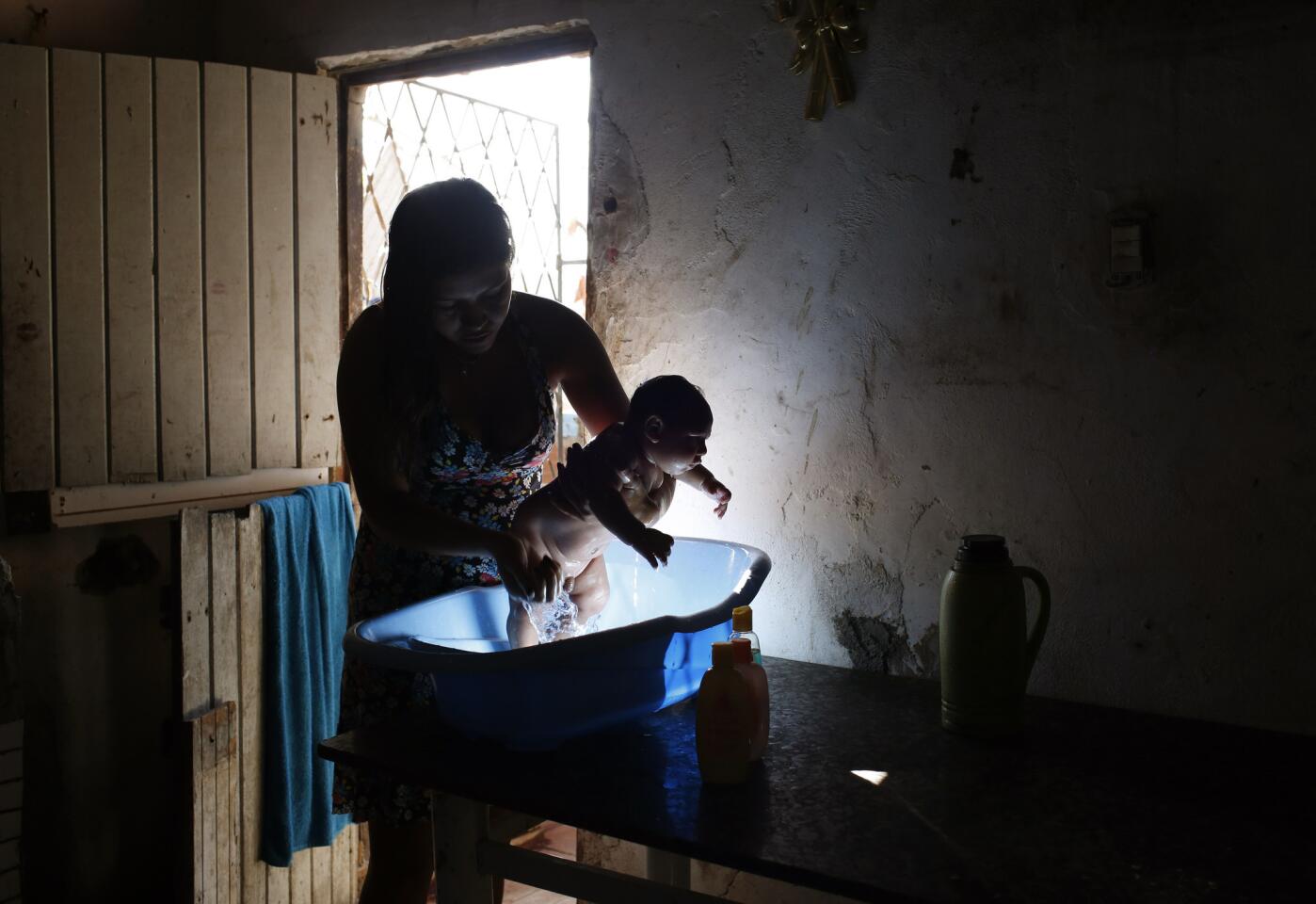With no vaccine available to protect humans from Zika, Brazil has declared war on the Aedes aegypti mosquitto that spreads the virus.
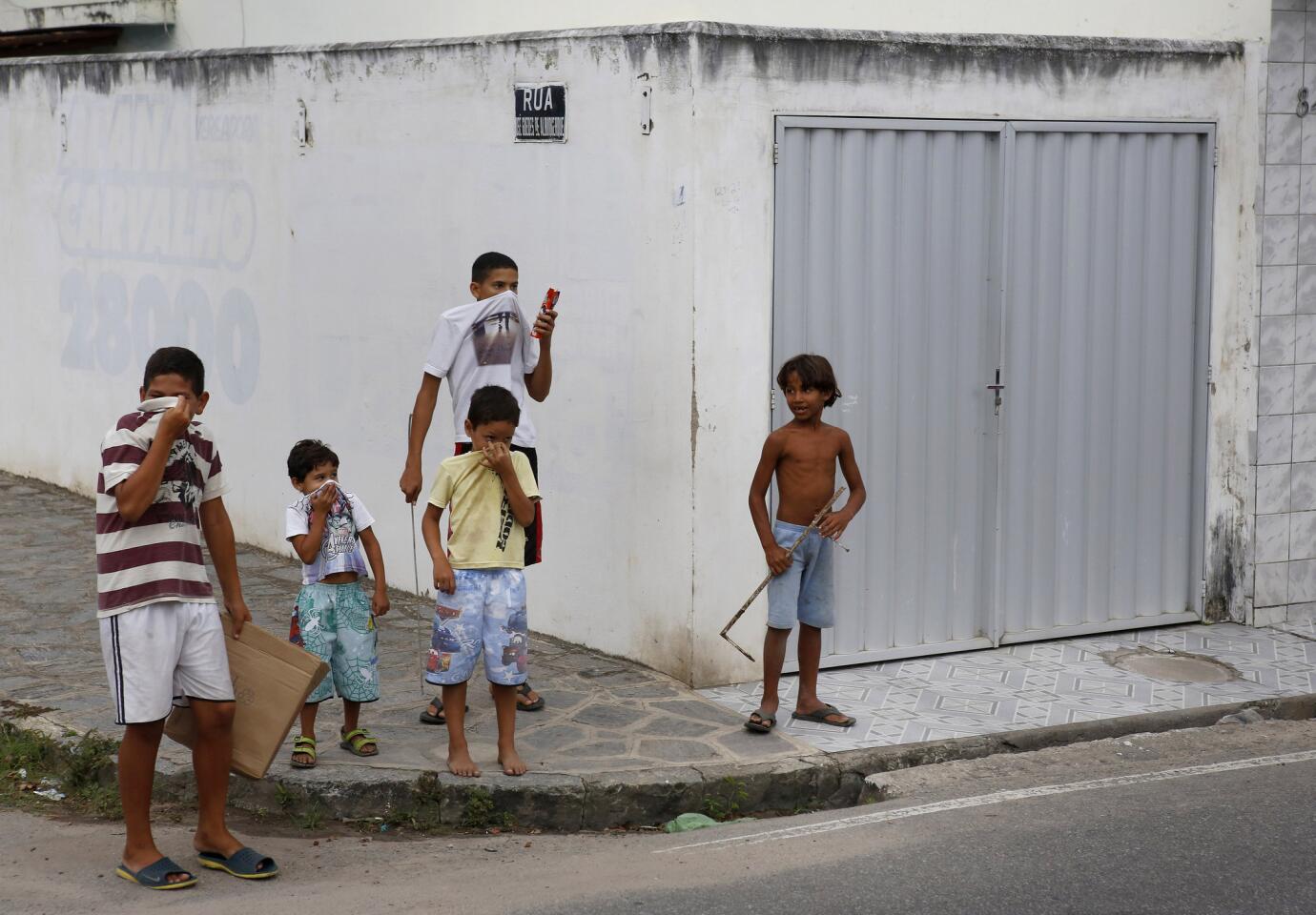
Children in Campina Grande cover their mouths and noses as a health worker sprays pesticide nearby to help control the mosquito population.
(Katie Falkenberg / Los Angeles Times)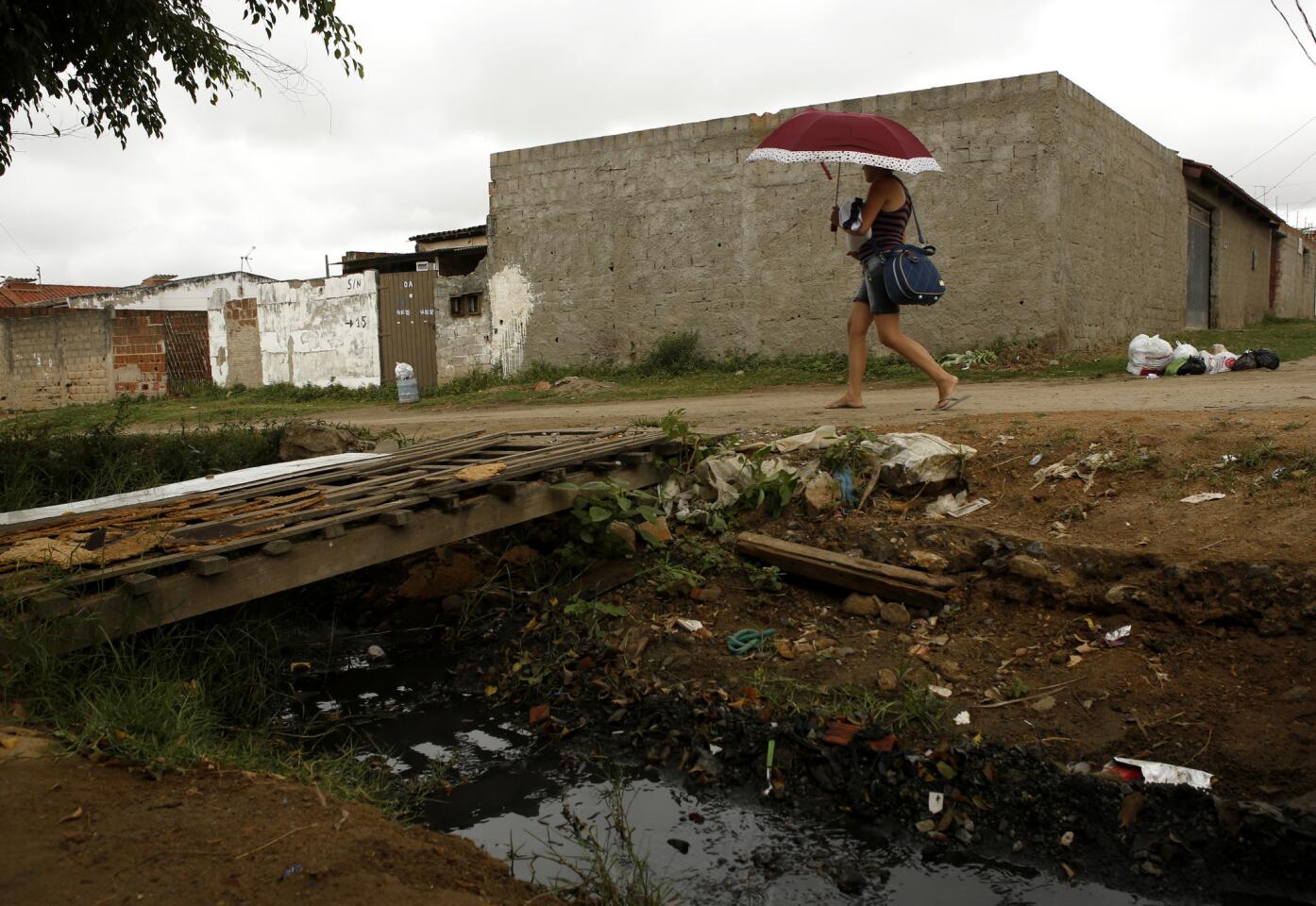
In the sprawling Three Sisters neighborhood of Campina Grande, makeshift sewers line the dirt streets.
(Katie Falkenberg / Los Angeles Times)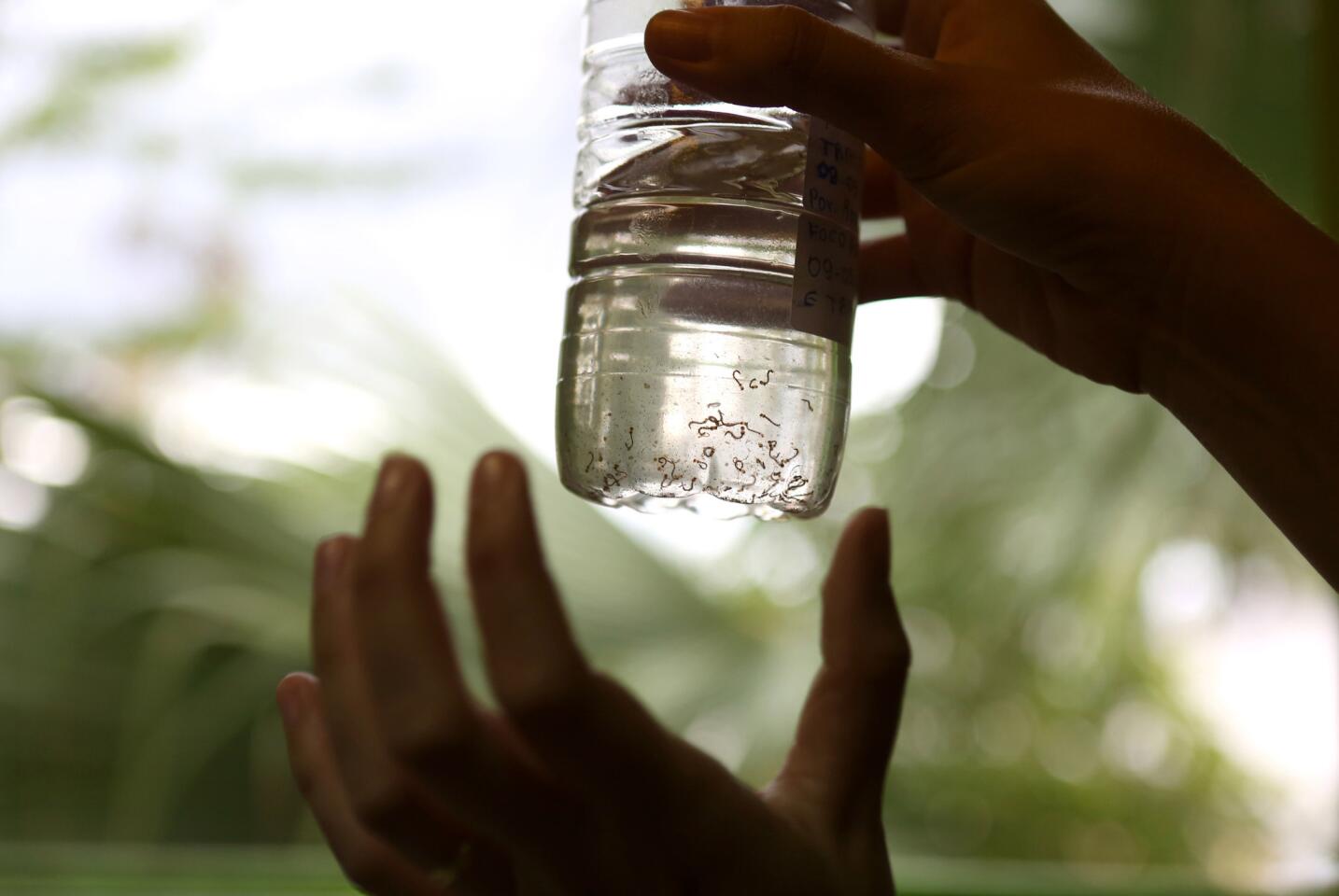
A water sample collected from a home in Campina Grande is full of mosquito larvae. (Katie Falkenberg / Los Angeles Times)
Advertisement
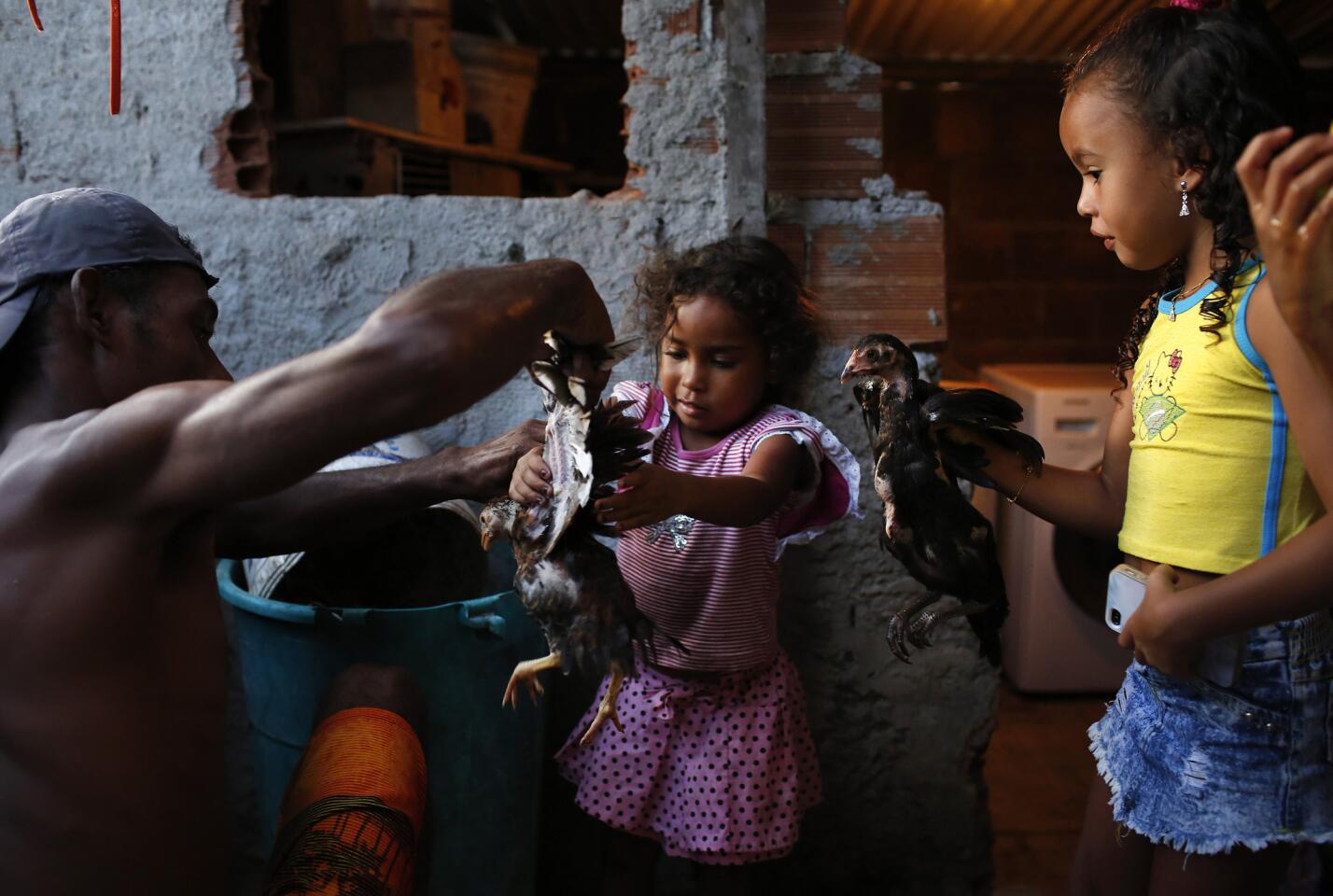
Alexandre Santiago, left, Samuel’s father, raises chickens in the family’s backyard in Campina Grande.
(Katie Falkenberg / Los Angeles Times)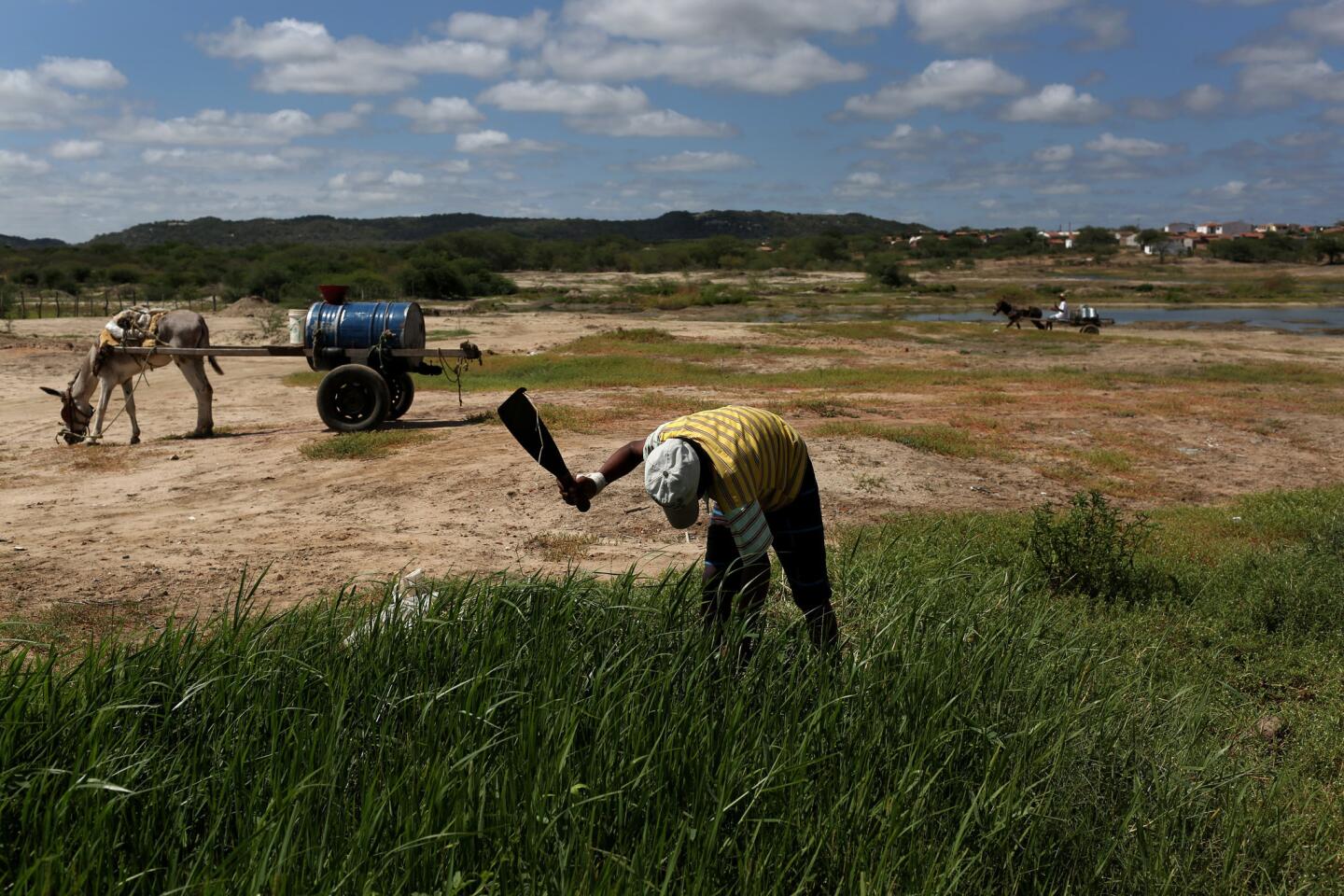
Farmers collect water from a pond and cut grass to feed their livestock in Juazeirinho, Brazil. Standing water in the pond provide ideal breeding conditions for mosquitoes.
(Katie Falkenberg / Los Angeles Times)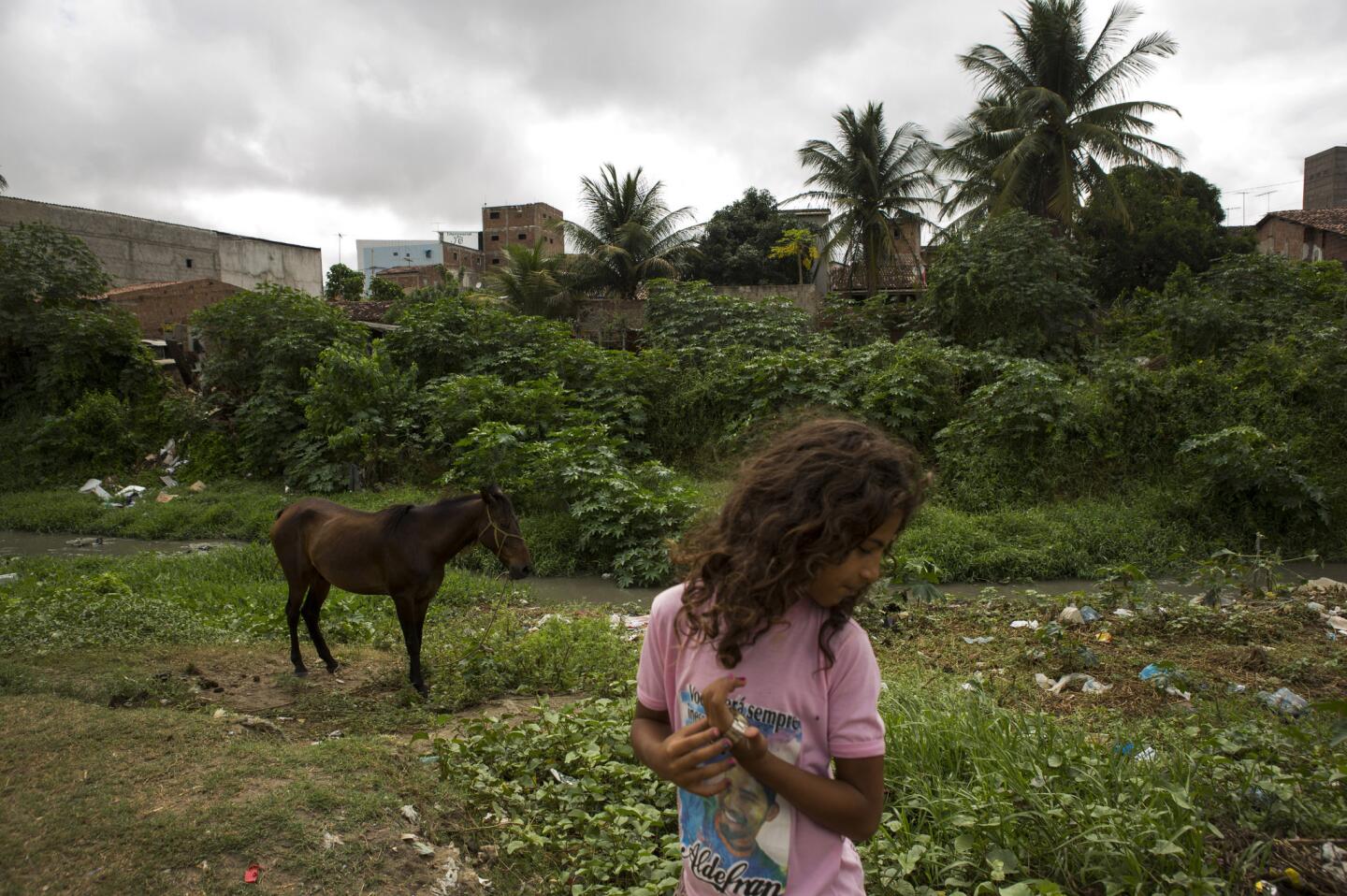
On the edge of a maze of crumbling brick homes in Campina Grande, a drainage canal is clogged with garbage. (Katie Falkenberg / Los Angeles Times)
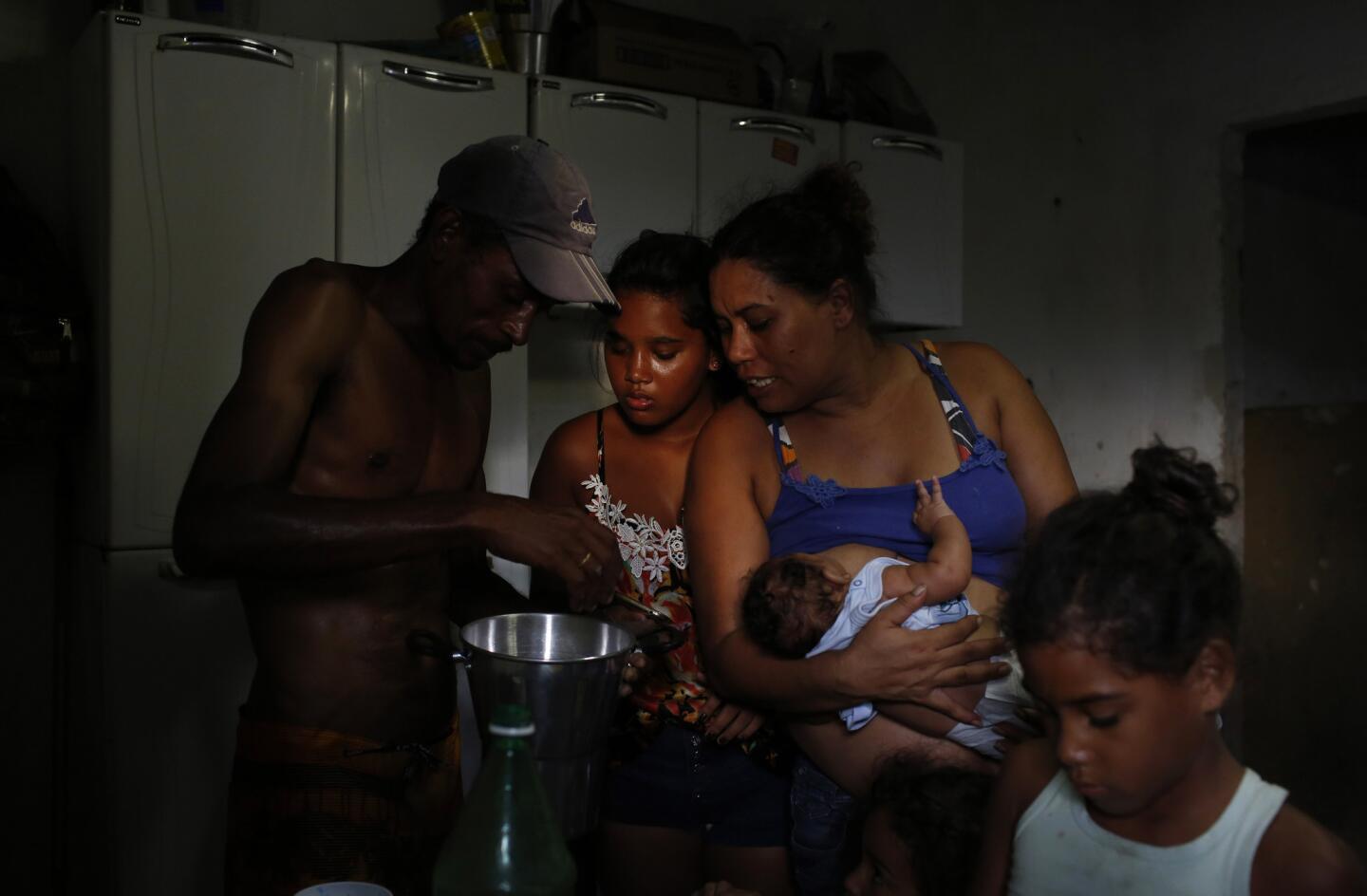
Alessandra de Sousa Amorim cradles baby Samuel as other family members gather in the kitchen. Their neighborhood is infested with mosquitoes, and homes like theirs don’t have screens on the windows and doors.
(Katie Falkenberg / Los Angeles Times)Advertisement
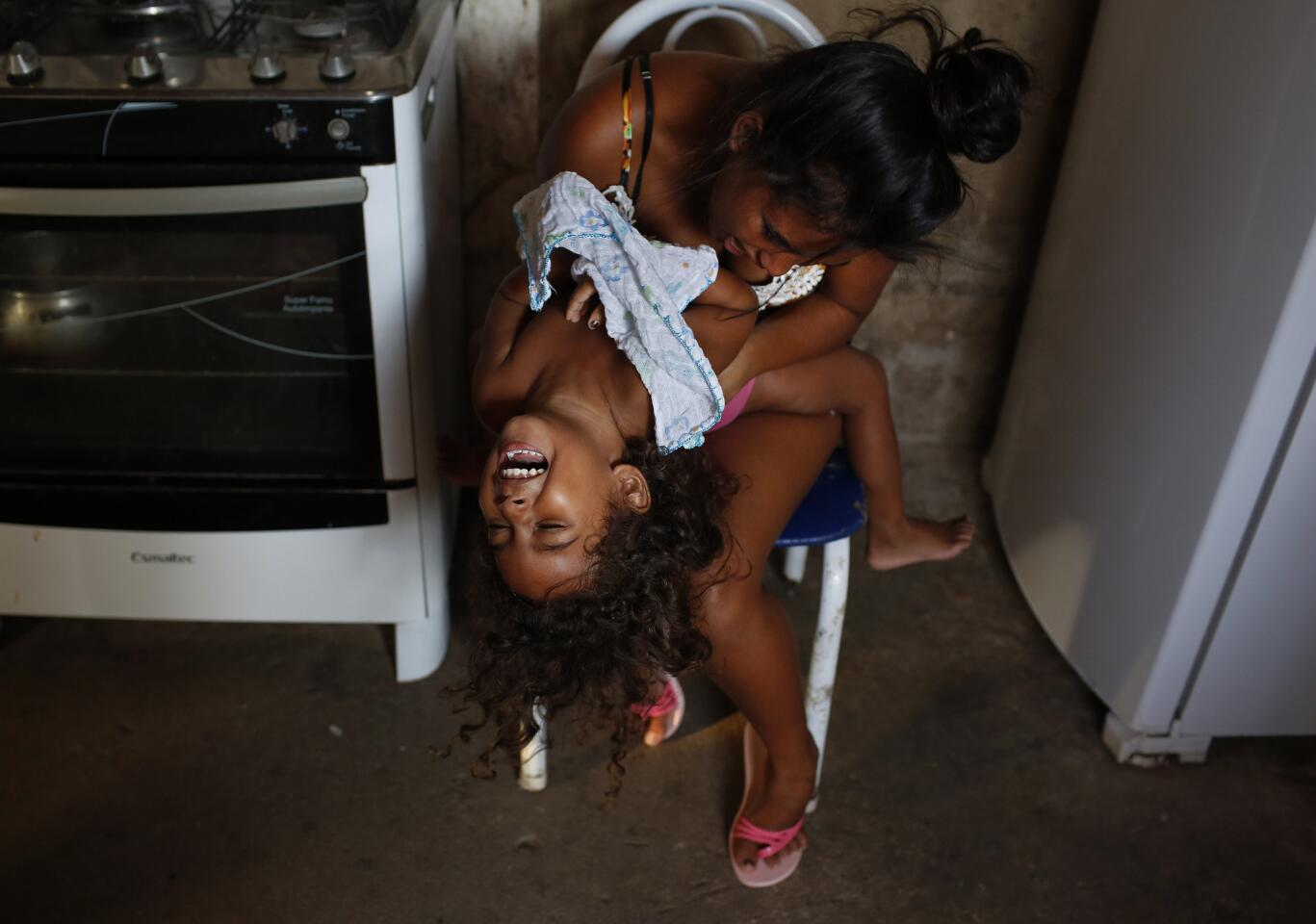
Valeria Santiago, 16, plays with her 4-year-old sister, Vivian, at their home in Campina Grande, Brazil.
(Katie Falkenberg / Los Angeles Times)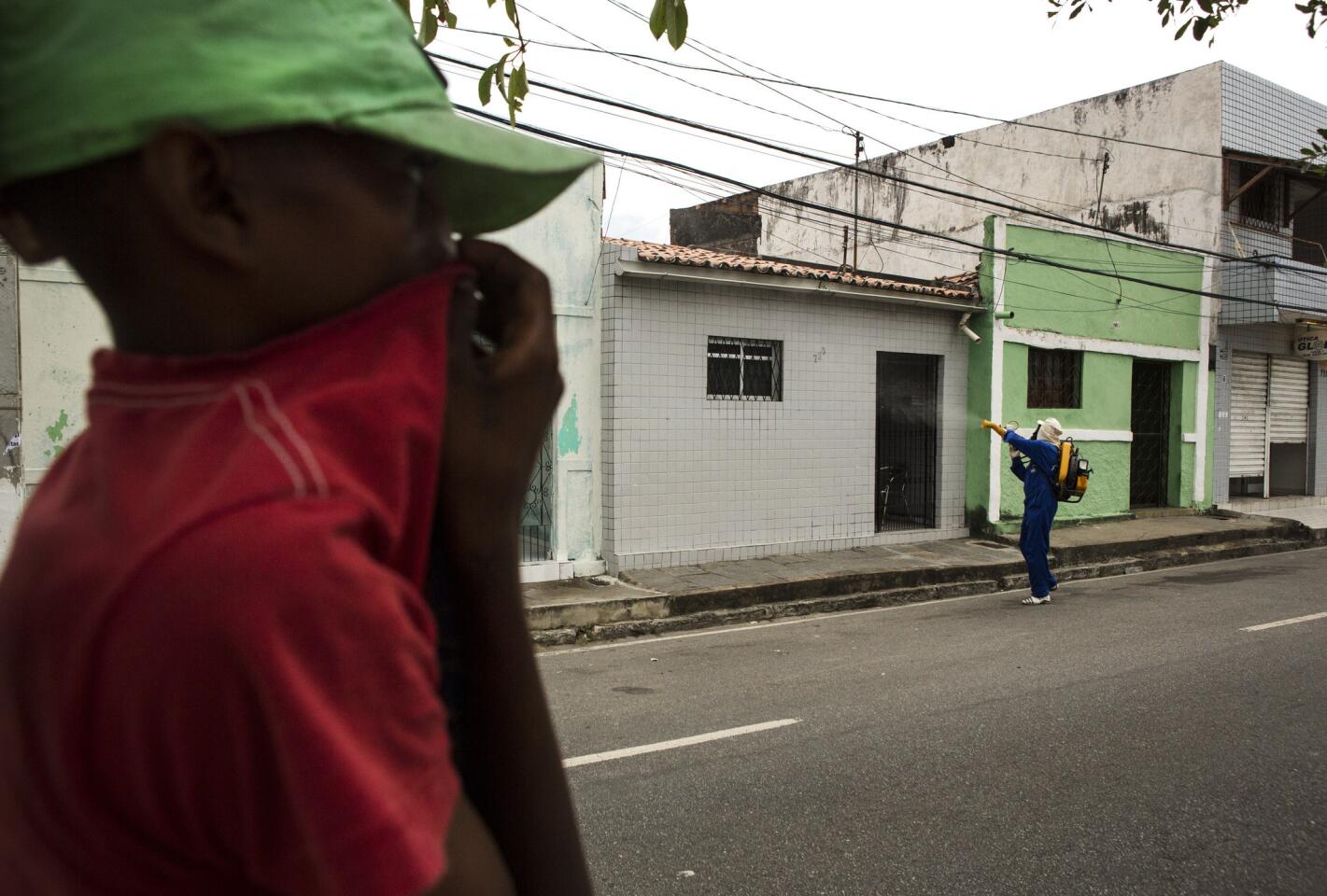
A city health worker sprays pesticide in a neighborhood in Campina Grande, Brazil, in a bid to eradicate the mosquito that spreads Zika and other viruses.
(Katie Falkenberg / Los Angeles Times)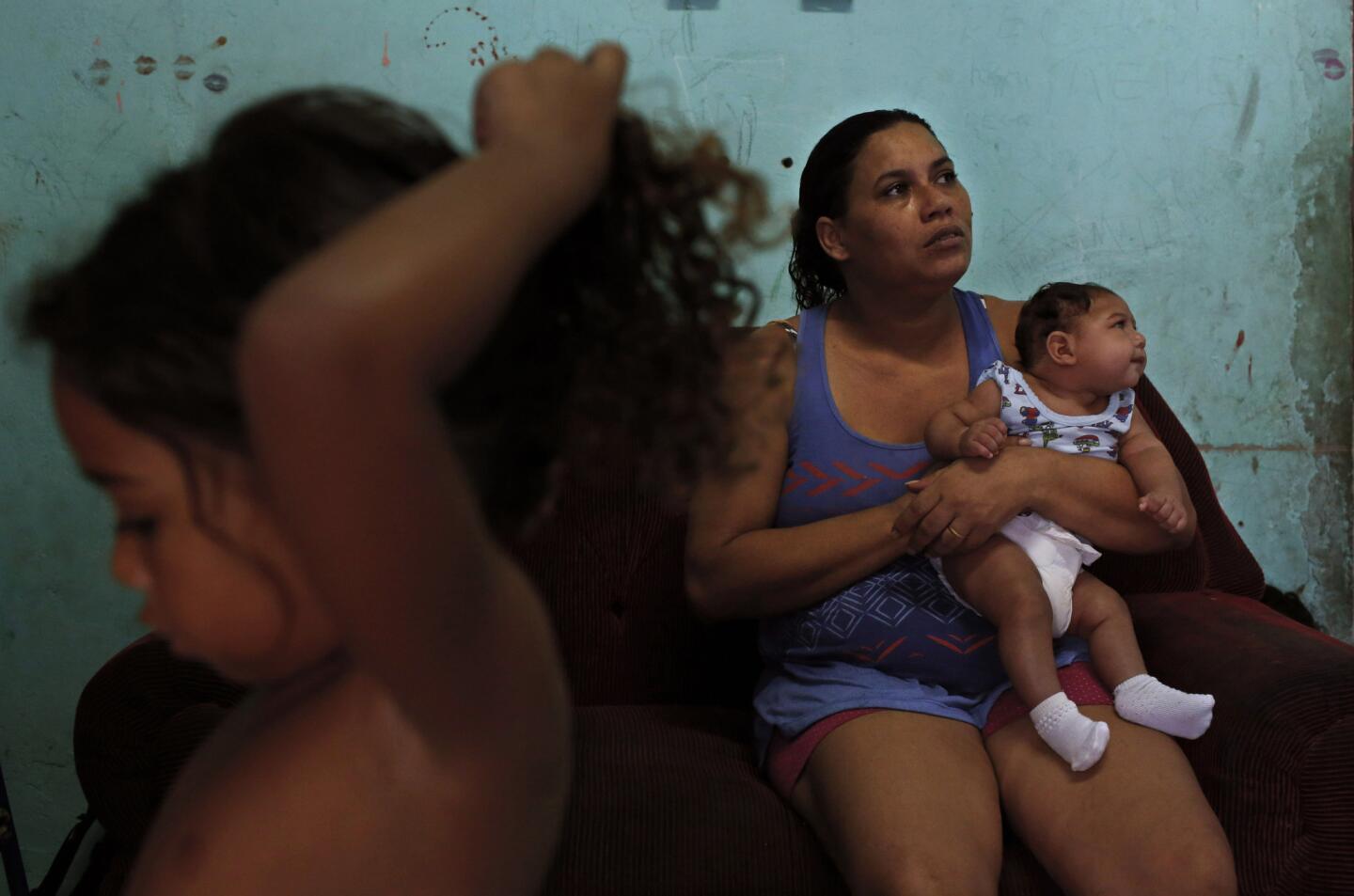
Last summer, when Alessandra de Sousa Amorim was pregnant with baby Samuel, she developed symptoms of the Zika virus. Samuel was born with microcephaly.
(Katie Falkenberg / Los Angeles Times)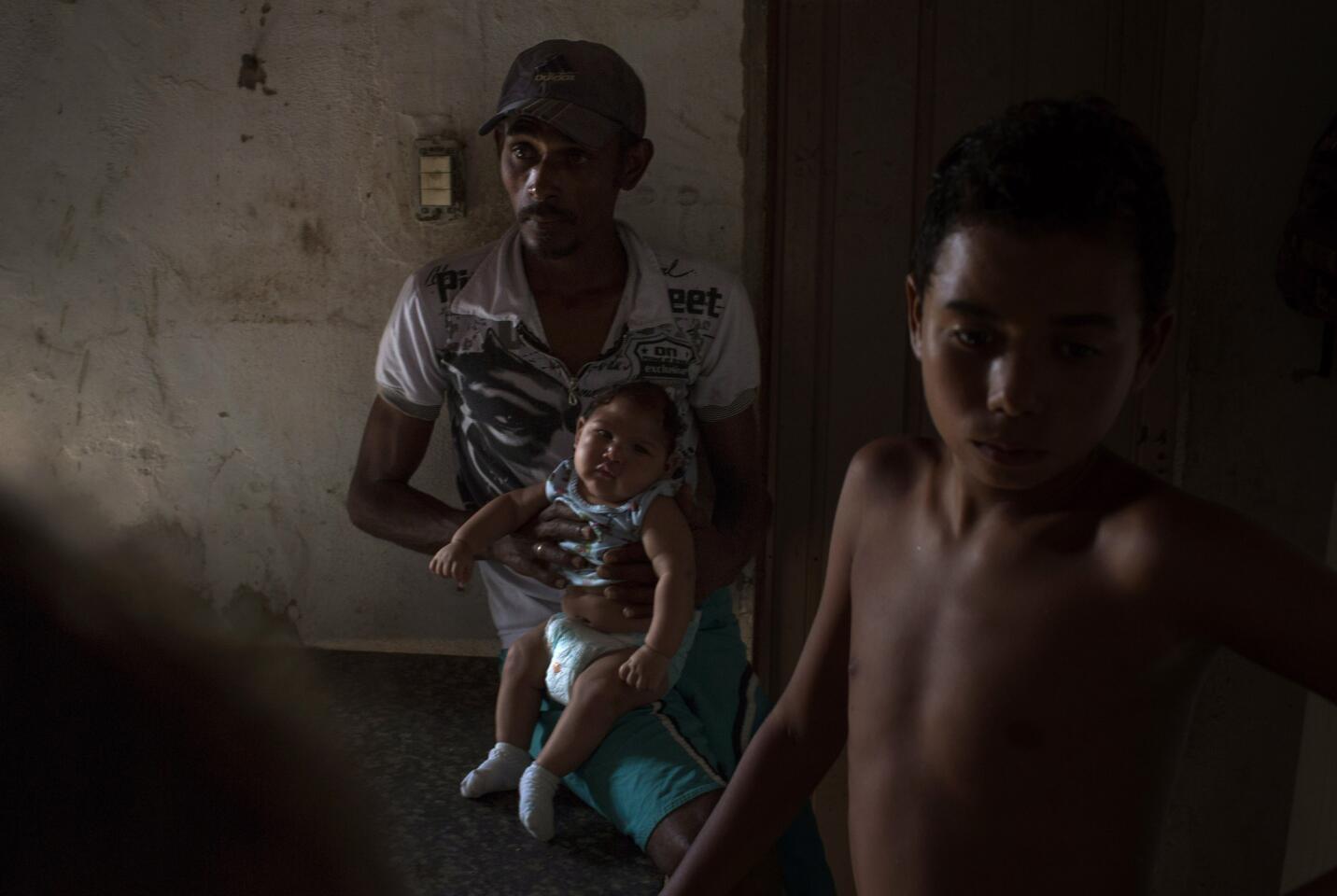
Alexandre Santiago holds his son, Samuel, who was born with microcephaly, in their home in Campina Grande, Brazil.
(Katie Falkenberg / Los Angeles Times)Advertisement
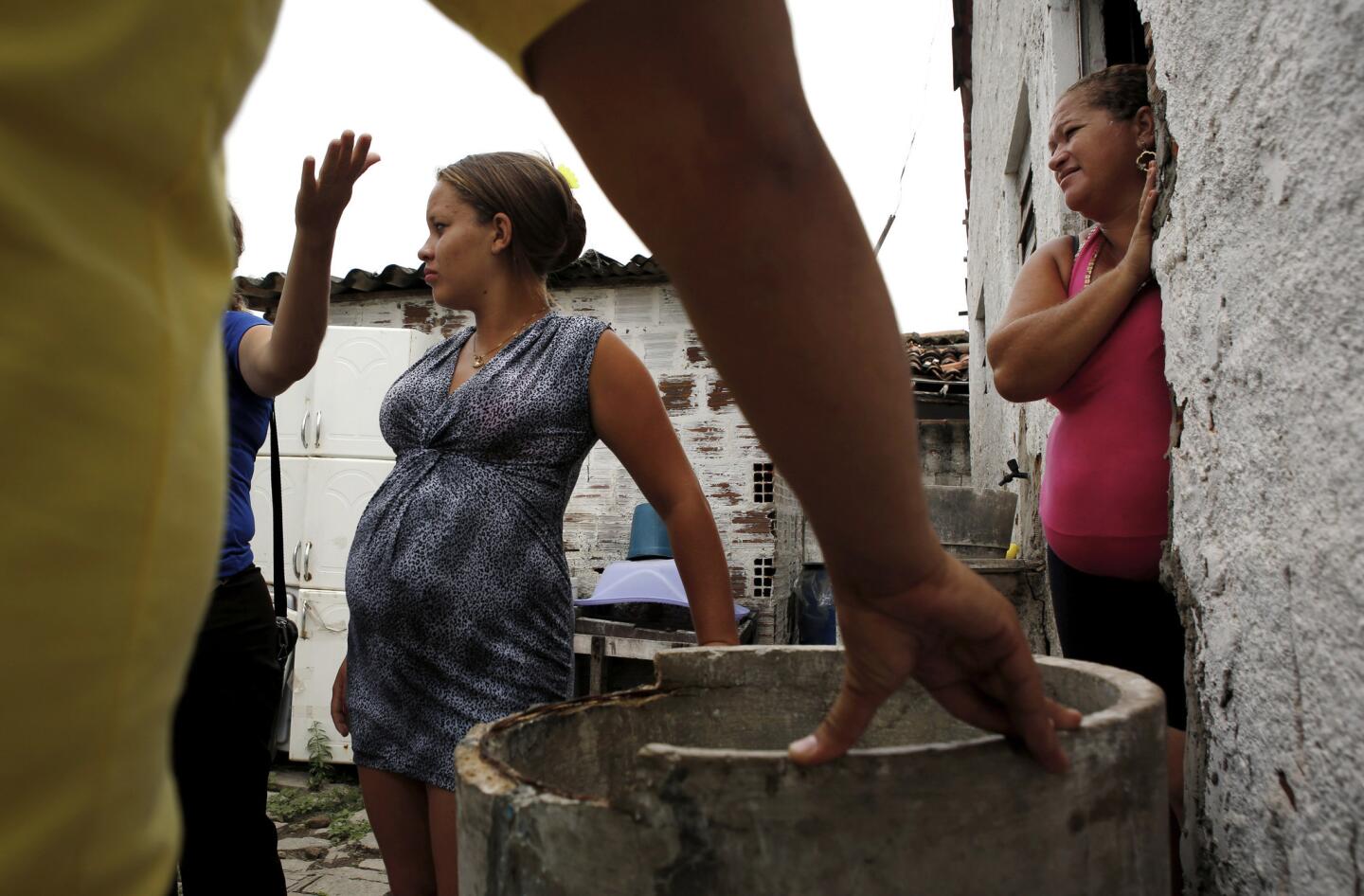
Inspectors found mosquitoes breeding in a family’s water storage containers in the Three Sisters neighborhood of Campina Grande. (Katie Falkenberg / Los Angeles Times)
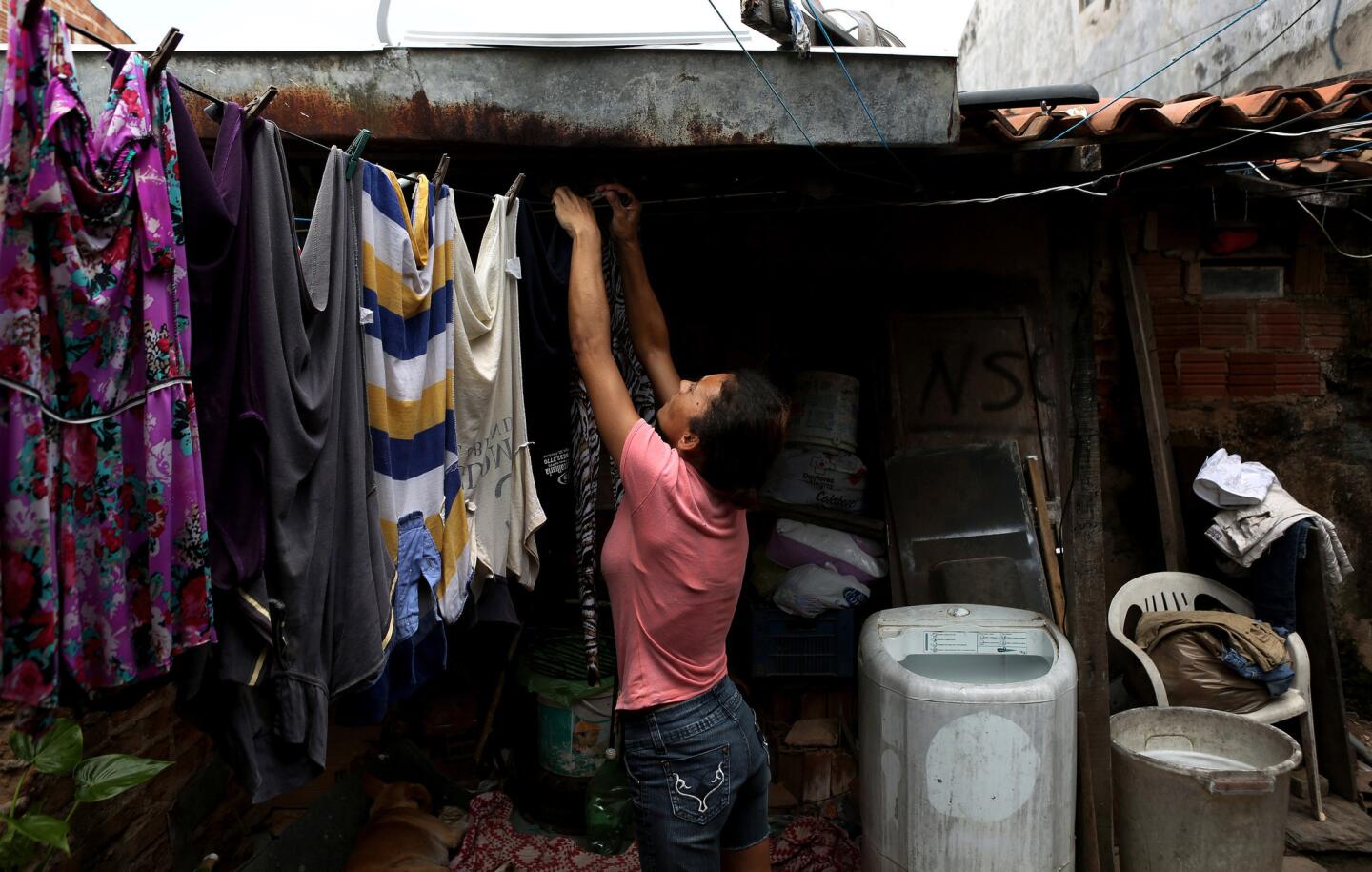
Sidnayde dos Santos hangs laundry outside her family’s one-room home in Campina Grande, Brazil. The family does not have running water, so they store it in plastic containers and the washing machine.
(Katie Falkenberg / Los Angeles Times)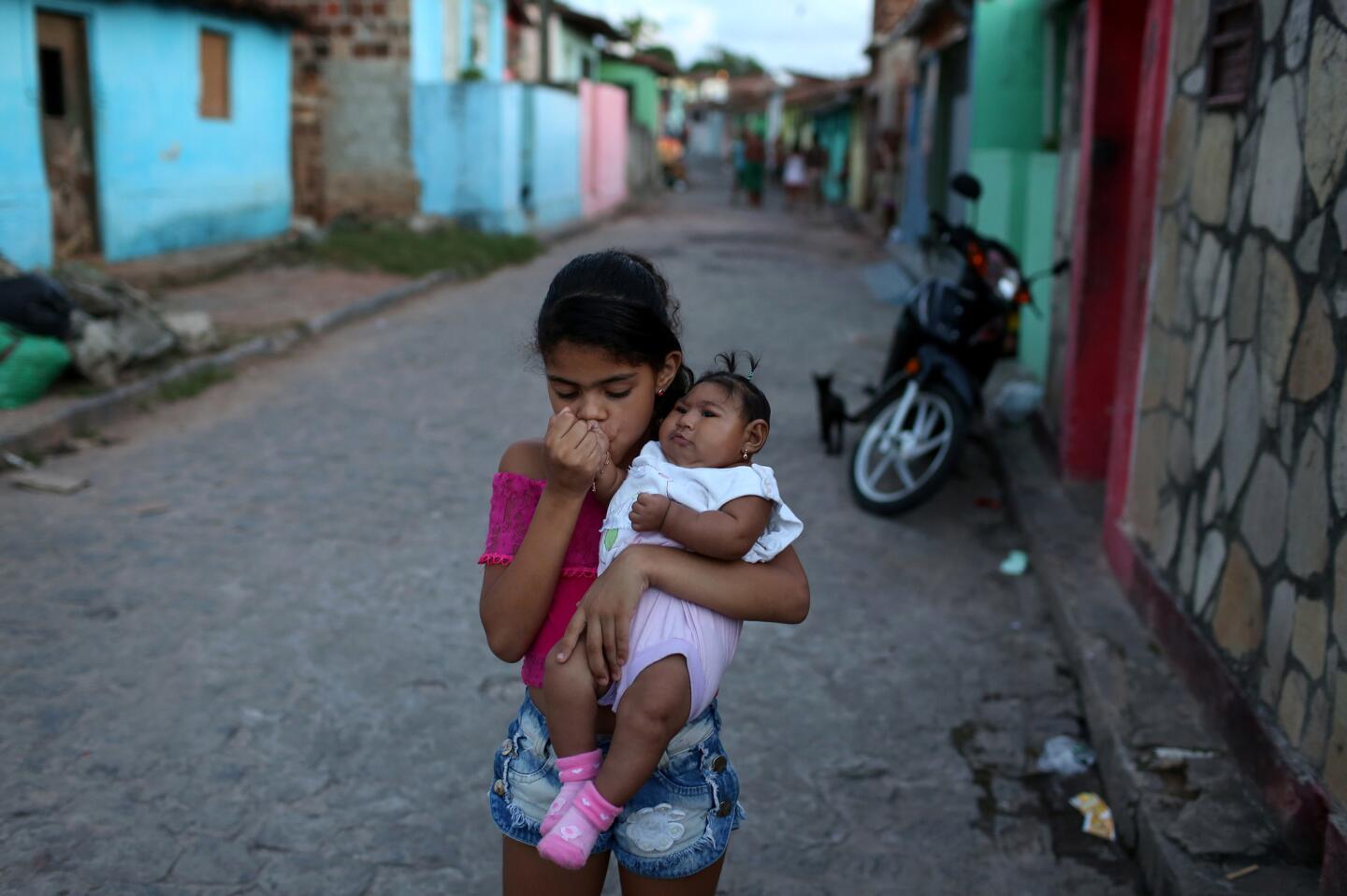
Evellyn Mendes Santos, age 9, kisses her baby sister, Heloyse, outside of their home in Joao Pessoa, Brazil.
(Katie Falkenberg / Los Angeles Times)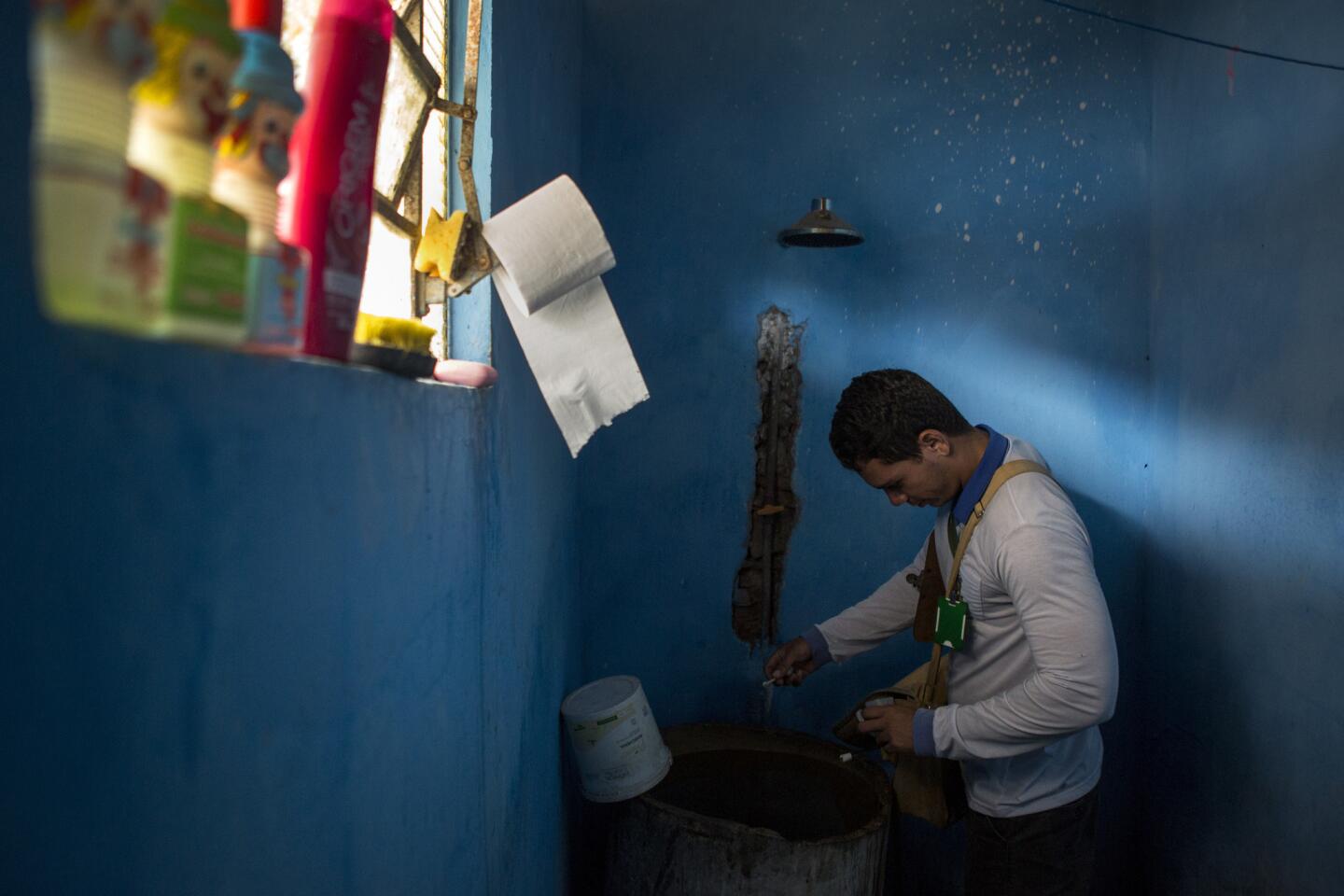
Mosquito control agent Danilo Cavalcanti sprinkles larvicide into a water storage container in the bathroom of a home in Campina Grande. At one point last year, the Brazilian government stopped shipping larvicide — a key weapon in the fight against mosquitoes — to some of the places hardest hit by the Zika epidemic.
(Katie Falkenberg / Los Angeles Times)Advertisement
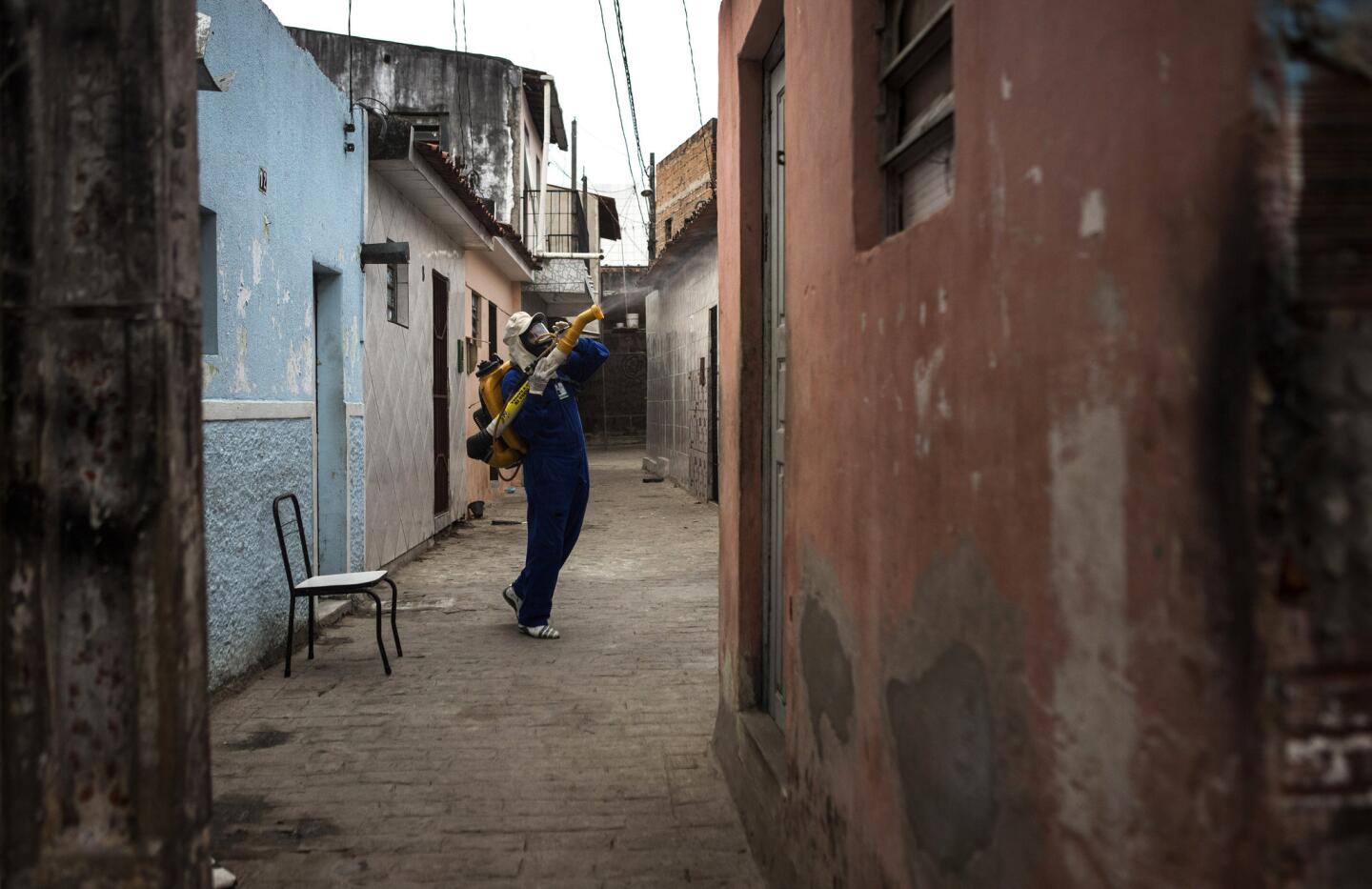
The city of Campina Grande has been fumigating neighborhoods in an attempt to eradicate the mosquito that spreads Zika and other viruses.
(Katie Falkenberg / Los Angeles Times)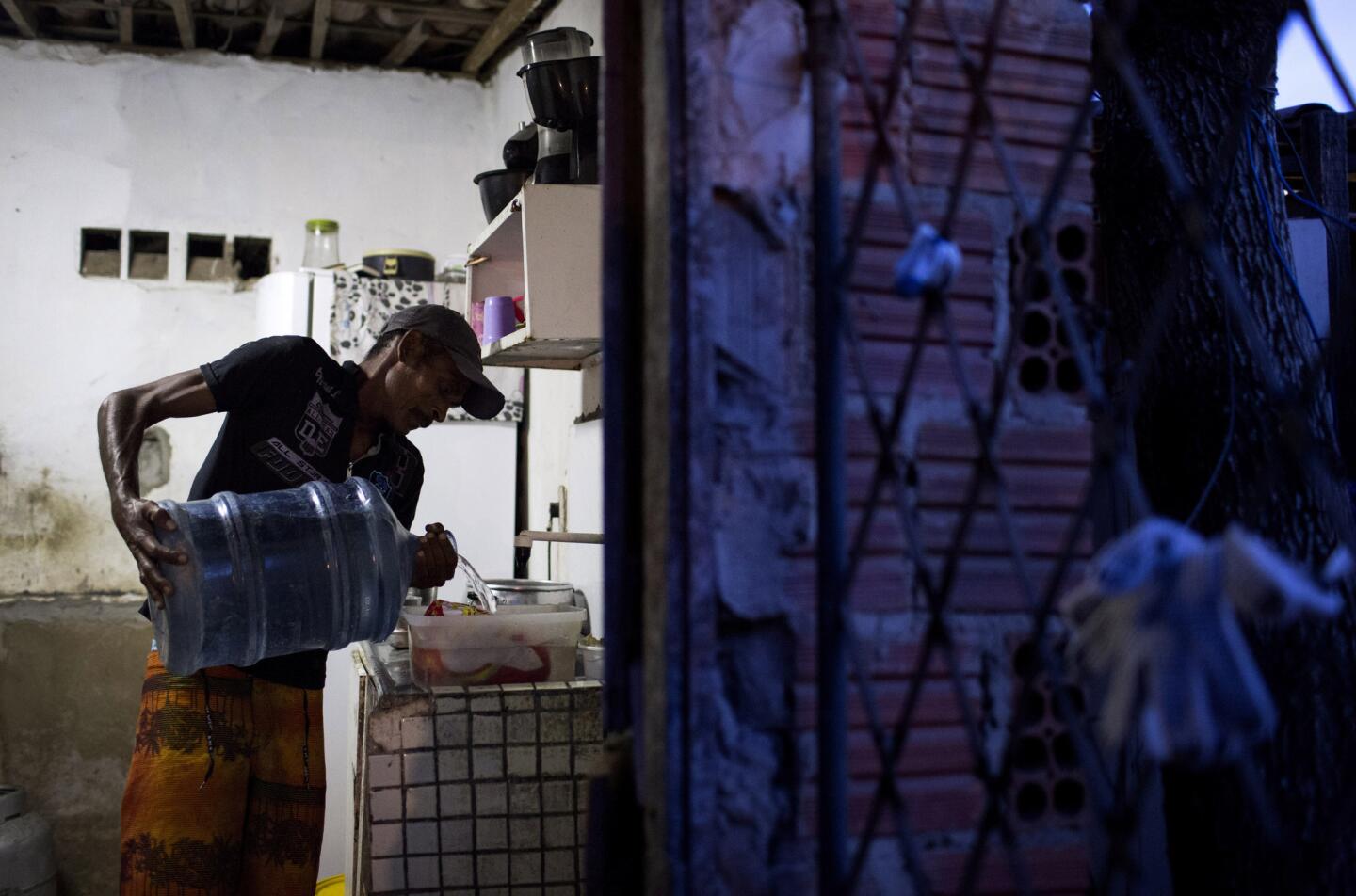
Alexandre Santiago pours water from a jug in his kitchen in the Three Sisters neighborhood of Campina Grande, Brazil, which is without running water three days out of the week.
(Katie Falkenberg / Los Angeles Times)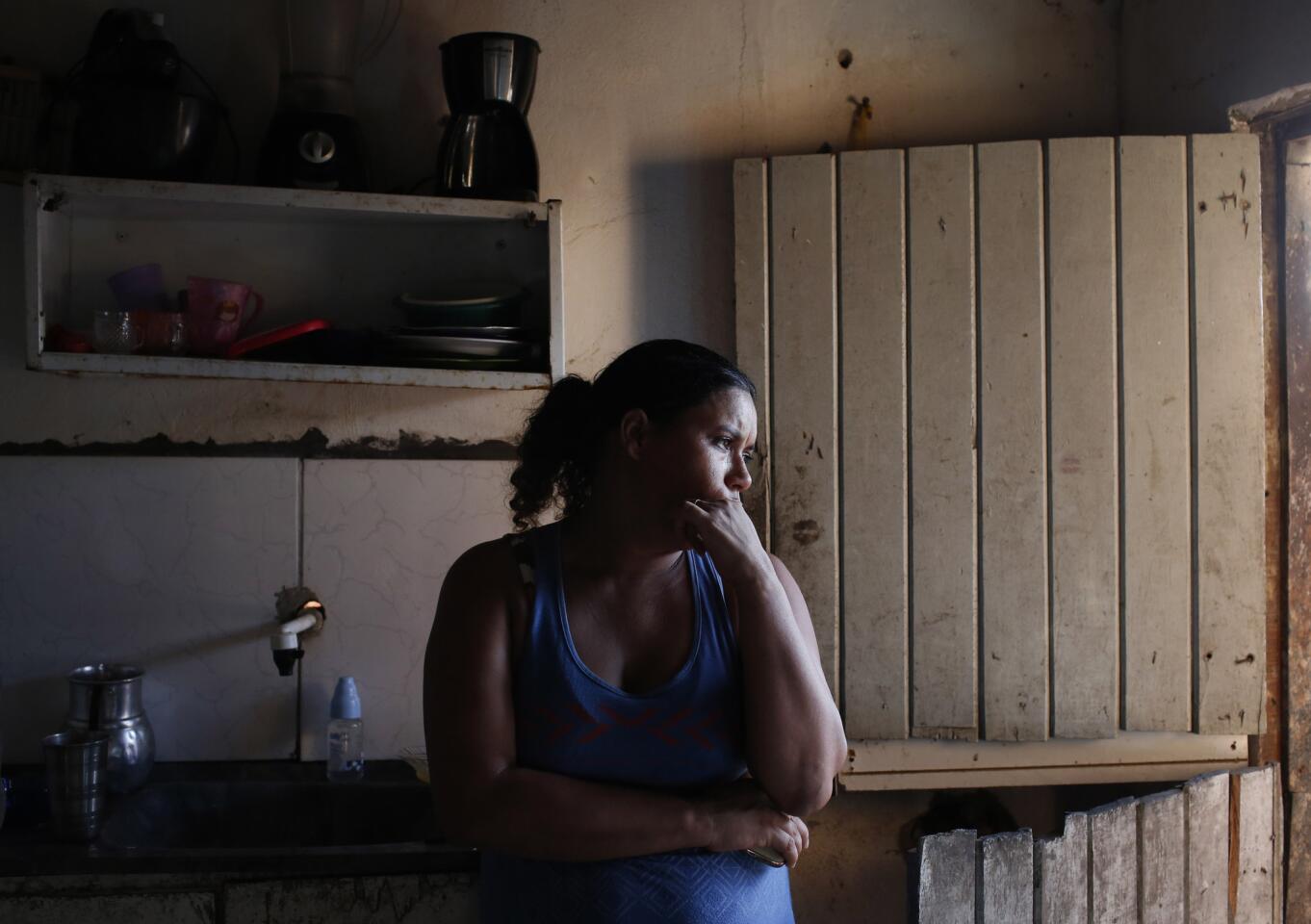
Alessandra de Sousa Amorim couldn’t afford to buy bug spray when she was pregnant with Samuel, who was born with microcephaly. “I’m not going to stop buying food in order to buy repellent,” she said.
(Katie Falkenberg / Los Angeles Times)